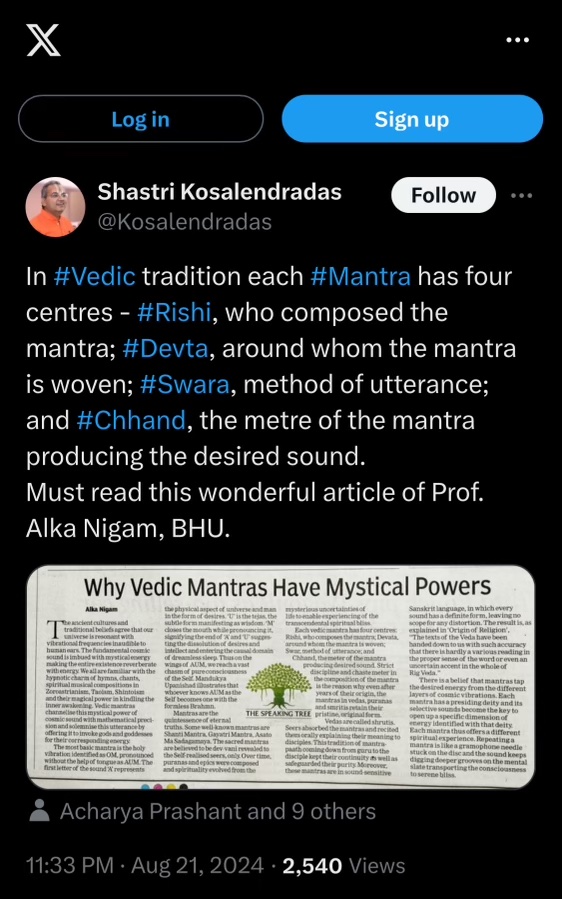Published in Hindustan Times, Varanasi Plus Edition
Guest Column
Dr Alka Nigam
Reader, Department on English, BHU
In spite of being labelled backward, traditional to the core with illiterate masses, we Banarasis’ nonetheless speak English that is hundred percent intelligible. From international standards it is as respectable as the English spoken by a German, an Austrian or a Russian shopkeeper, a cab driver or a waitress.
Varanasi, one of the ancient cities in the world with flourishing trade of silk, carpet and handicrafts, bejewelled with maestros of classical Indian music on one hand and savants, philosophers and eminent writers of Sanskrit and Hindi on the other, attracts merchants, tourists, pilgrims and scholars from all over the world. Varanasi welcomes all and is extremely hospitable. It makes them comfortable with Banaras ki kachori, Banarasi paan and Banarasi English.
Here are some examples of deshi English- ‘Varanasi ancient city, Sir. Very very old. Varuna plus Assi jointed both called Varanasi. (a guide). You going boat ride. O.k. Come. No talk here. People watching. Golden temple, Kedar temple famous. Lots of tourists coming. Season off now (a boatman). Bijjaness is o.k. In Baranas. Here your tea is coming. Drink it. First I show you a brocade famous from Banaras (a shopekeeper).’
Varanasi is a microcosm of India. It represents the best of India and the worst of it. Accordingly English too, in this tourist city has assumed a wide spectrum and offers all possible varieties and pronunciation. A home to the Bengalis, South Indians, Punjabis, Biharis, the English of Banaras keeps the regional flavour intact. At the same time Banaras churns out its special Banarasi flavour.
Indian Constitution lists eighteen languages as the languages of India but as a medium of interstate communication and the medium of higher studies, English occupies a special position. Since proficiency in English is still considered to the the sina qua non for better prospects in the employment and a lot of glory and glamour is still attached with the English speaking class, English has flowered in India to an extant it had never done in British times. Over twenty millions in India, now speak all varieties of English. The hybridized from of English is labelled as Hinglish or Indish and has become an intergral part of an Indian’s speech.
Prof. RR Mehrotra, in his well researched book Indian English, has made a comprehensive survey of the three varieties of English spoken in India- the high variety (which impressed the well known British critic IA Richards so much on his visit to Banaras Hindu University he wondered why students went to England for higher studies when they have such distinguished scholars of English in BHU), the middle variety, including the babu English, and the low variety known as butler English, pidgin English or broken English. He says, Indian English may broadly be defined as a non-native variety of English used in India. Although based on standard British English, it has evolved over the years certain linguistic features, distinct from the native variety, in consonance with the socio-cultural and linguistic realities of India.
The campus of BHU, always vibrating with academic activities and informal gatherings, is a clear mirror that reflects the kind of English that has evolved over the years and its future. The speeches and lectures of scholars and professors present examples of impeccable English (high variety).
The middle variety presents a queer mixture of cumbersome and colonial English of babus, the informal English of students and large variety of imaginative usages of English words and idioms.
Here is a typical example of a formal application by a student of BHU: “Respected Madam I beg to say that I am going to my I.G’s place for 27th and 28th March 1998. Kindly grant my leave and off my diet for 28th March and oblige. Thanking you”.
Indian English projects Indian life and milieu with its wide social, cultural and linguistic differences. It has acquired a general acceptability and has emerged as a self-respecting, established variety of English. Variant’ and not deviant’ is the proper word to define it. As Khushwant Singh, the grand young man of Indian writing in English, puts it what is the harm in taking English over and mauling it as we wish and pronouncing it as we want?


nice….. gives Hinglish a new meaning
Very nice description of varanasi 👍🏻
Was a student of the Author Madam at BHU